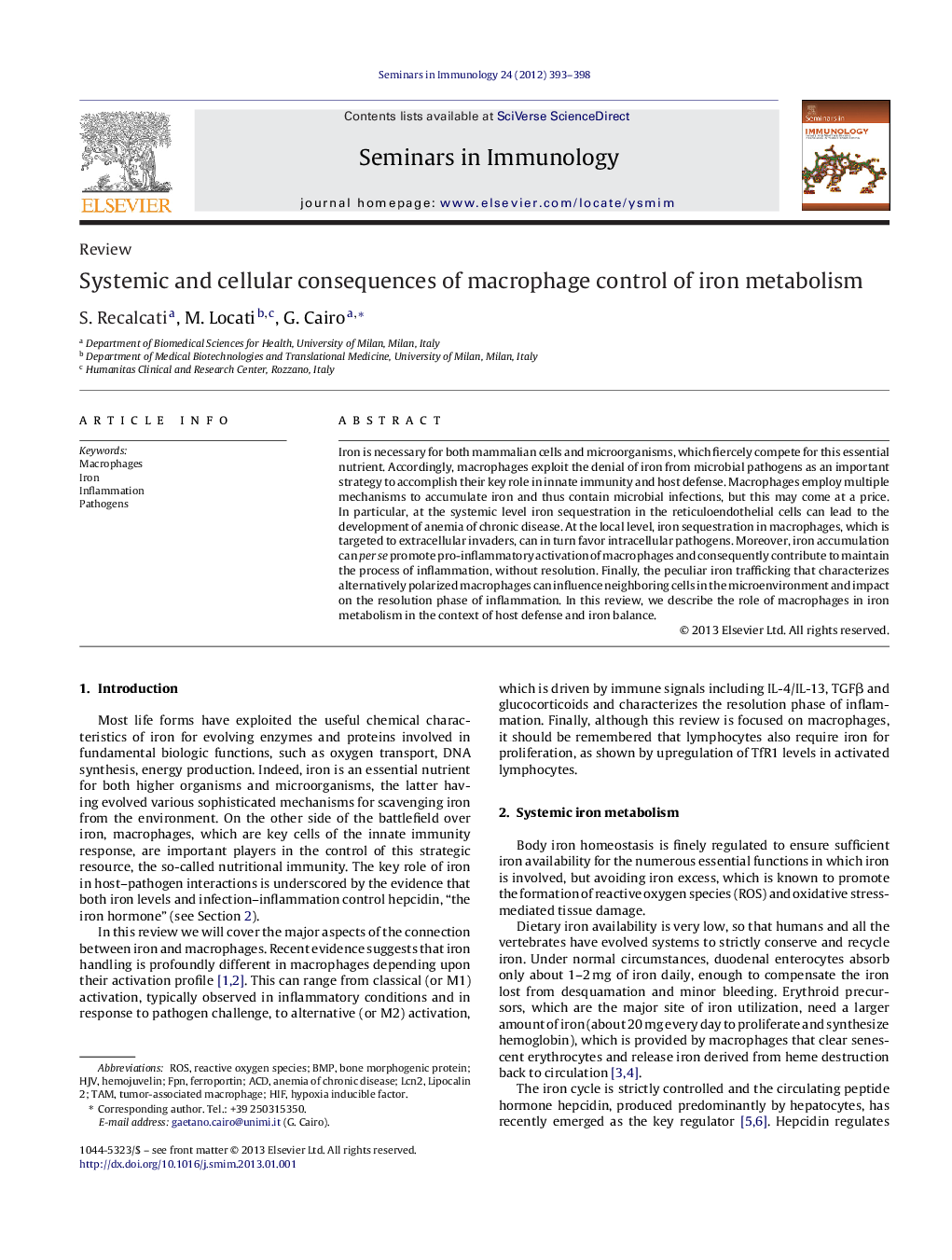| Article ID | Journal | Published Year | Pages | File Type |
|---|---|---|---|---|
| 3391451 | Seminars in Immunology | 2012 | 6 Pages |
Iron is necessary for both mammalian cells and microorganisms, which fiercely compete for this essential nutrient. Accordingly, macrophages exploit the denial of iron from microbial pathogens as an important strategy to accomplish their key role in innate immunity and host defense. Macrophages employ multiple mechanisms to accumulate iron and thus contain microbial infections, but this may come at a price. In particular, at the systemic level iron sequestration in the reticuloendothelial cells can lead to the development of anemia of chronic disease. At the local level, iron sequestration in macrophages, which is targeted to extracellular invaders, can in turn favor intracellular pathogens. Moreover, iron accumulation can per se promote pro-inflammatory activation of macrophages and consequently contribute to maintain the process of inflammation, without resolution. Finally, the peculiar iron trafficking that characterizes alternatively polarized macrophages can influence neighboring cells in the microenvironment and impact on the resolution phase of inflammation. In this review, we describe the role of macrophages in iron metabolism in the context of host defense and iron balance.
► Iron retention in pro-inflammatory M1 macrophages has a bacteriostatic effect. ► Macrophage iron sequestration may lead to iron deficiency and anemia of chronic disease. ► Iron accumulation can result in pro-inflammatory activation of macrophages. ► Iron release from alternative M2 macrophages may impact on cells in the microenvironment.
